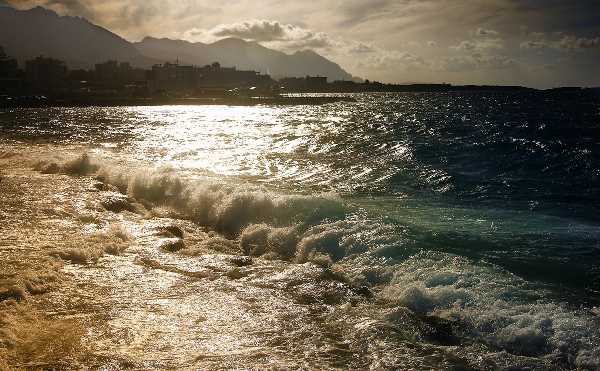By Hugh Pope Published on June 14, 2011
Based on Crisis Group’s four years of reporting in Turkey, here are 10 outstanding diplomatic and political tasks we think should be tackled with determination by the new Turkish government, following the parliamentary election victory of Prime Minister Tayyip Erdogan’s Justice and Development Party (AKP) on Sunday.
Firstly, relaunch Turkey’s EU accession process. The EU’s internal divisions, and some European politicians’ hostility to Turks joining the club, have harmed the EU’s appeal in Turkey. But some four million people of Turkish origin live in Europe, half of Turkey’s trade is with Europe, most tourists to Turkey come from Europe, NATO is the cornerstone of Turkish defence and two-thirds of Turkey’s foreign investment comes from EU states. The new Turkish government must proactively find a way to allow lifeblood back into the relationship.
Secondly, fix Cyprus. Ankara must refocus on the strategic goal it set itself in 2004: removing the Cyprus problem from the international agenda through achieving the reunification of the island. An easy first step is to implement the Additional Protocol, namely, opening Turkey’s ports and airports to Greek Cypriot traffic, a commitment Ankara formally signed in 2005 as a condition for starting EU negotiations. The EU could have helped by allowing direct, preferential trade to Turkish Cypriots, but it did not, and Turkey must now help itself. The new government would also do well to start a real, structured dialogue with Greek Cypriot officials to give a new impetus to ongoing talks to solve the Cyprus problem.
Thirdly, undertake broad, inclusive constitutional reform. The AKP has promised a reformist, inclusive new constitution. Changes must first reduce sources of domestic conflict, before trying potentially divisive new ideas like moving to a new presidential system. At a minimum, any marks of ethnic discrimination should be removed and freedom of expression further anchored.
Fourthly, broaden and deepen reforms to solve the Kurdish problem. The AKP’s reaching out to Turkey’s approximately 15 per cent Kurdish community, helped put a long-term settlement of the Kurdish problem within reach. The new government must broaden and deepen this initiative, offering permission to towns and villages to revert to their original names, more local government, and the right to bilingual education.
Fifthly, sustain Turkey’s engagement in the Middle East. The revolts in the Arab world set back Turkey’s hopes of rapid progress to a more stable, prosperous neighbourhood, but Ankara should continue to work towards Foreign Minister Ahmet Davutoglu’s ”zero problem” foreign policy goals: a better-governed, more interdependent region with more efficient borders, integrated infrastructure, visa-free travel and free trade.
Sixthly, seek opportunities to normalise relations with Israel. A voyage planned by a new international flotilla to break the Israeli blockade of Gaza at the end of June will pose an early test for the new government, given that several Turkish NGO members will be among those sailing. Turkey should seek chances to normalise relations with Israel in the consciousness that its international leverage is most effective when it has productive ties with all parties in the region.
Seventhly, seize any chance to normalise relations with Armenia. Two ground-breaking protocols signed between Turkey and Armenia in 2009 on normalizing relations have floundered on a Turkish condition that Armenia first withdraw from at least some Azerbaijani territory occupied around Nagorno-Karabakh. The new Turkish government should seize on any breakthrough to find ways to implement the protocols on re-opening the Armenian border and establishing diplomatic relations.
Eighthly, finesse the Aegean Sea dispute to resolve Turkey’s 40 year-old territorial disputes with neighbouring Greece over the Aegean Sea. Ankara and Athens have done much to consolidate normalisation since 1999. Turkey’s new government can help by preparing the rhetorical ground for compromise, and, more practically, by eliminating Turkish military flights over inhabited Greek islands, demonstrating that theoretical Aegean disputes can be talked about rather than fought over.
Ninthly, seek long-term domestic improvements. In the first two terms in office, the AKP government registered remarkable progress. Torture almost disappeared from Turkish jails, single-party government brought more policy consistency and better municipalities have brightened the face of most Turkish cities. The new government must now prioritise reform of the judiciary, the education system, women’s rights and freedom of expression.
Tenthly, continue to widen democratic participation. The democratic legitimacy of Turkey’s elections make it the stand-out country in the region. Now, political parties need to move to a system that is more bottom-up and less top-down, ending the scandalously low participation of women in politics, and encouraging more youth to join parties and work their way up them. Finally, parliamentary regulations need to be reformed to allow more efficient legislation drafting and to win greater public trust in the assembly’s workings.
Hugh Pope is Turkey/Cyprus Project director for the Crisis Group. You can read the full version of this editorial here: .



 A TURKISH decree banning Turkish Cypriot students who study at schools in the government controlled areas from applying to universities there was yesterday slammed by local educationalists.
A TURKISH decree banning Turkish Cypriot students who study at schools in the government controlled areas from applying to universities there was yesterday slammed by local educationalists.
 Le Fleuri Restaurant at Le Meridien Limassol Spa & Resort, Cyprus
Le Fleuri Restaurant at Le Meridien Limassol Spa & Resort, Cyprus
 Sparkling Sea at Cyprus – Courtesy Charles Pieters
Sparkling Sea at Cyprus – Courtesy Charles Pieters

 Lagoon Pool of Le Meridien Limassol by Smolyarchuk Irina – hotel photo contest image
Lagoon Pool of Le Meridien Limassol by Smolyarchuk Irina – hotel photo contest image
 Late summer sun at Girne – Courtesy Ulrich Kersting
Late summer sun at Girne – Courtesy Ulrich Kersting




 Kucuk will travel to British capital of London on Monday to attend events to celebrate the 60th anniversary of the foundation of the Turkish Cypriot Association.
Kucuk will travel to British capital of London on Monday to attend events to celebrate the 60th anniversary of the foundation of the Turkish Cypriot Association.